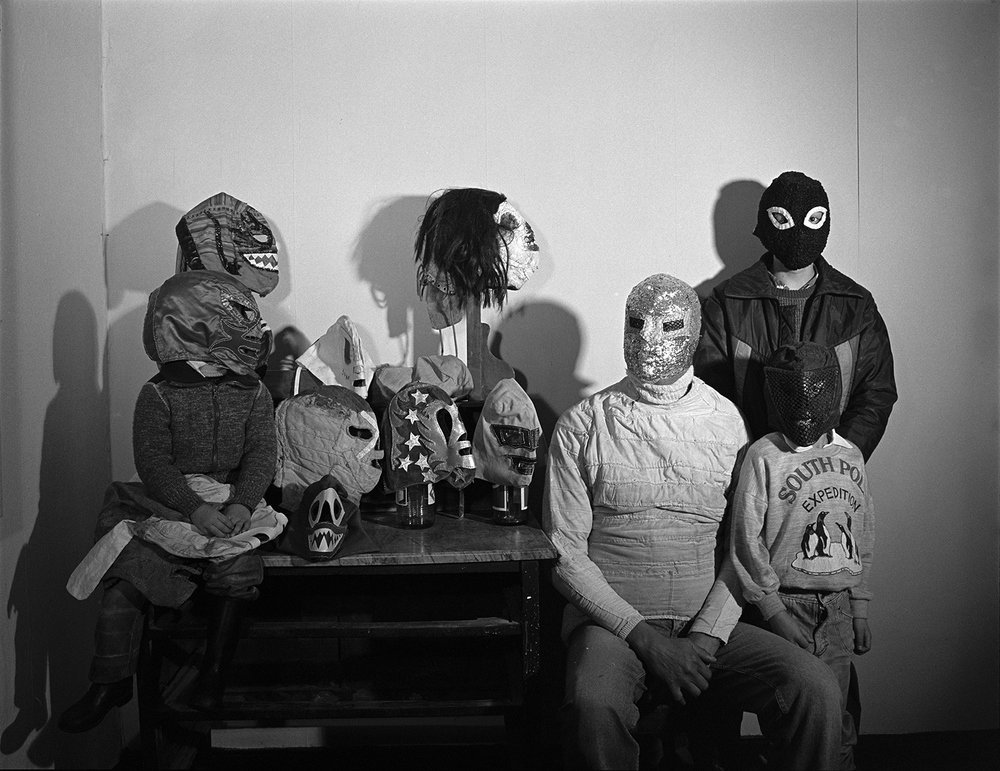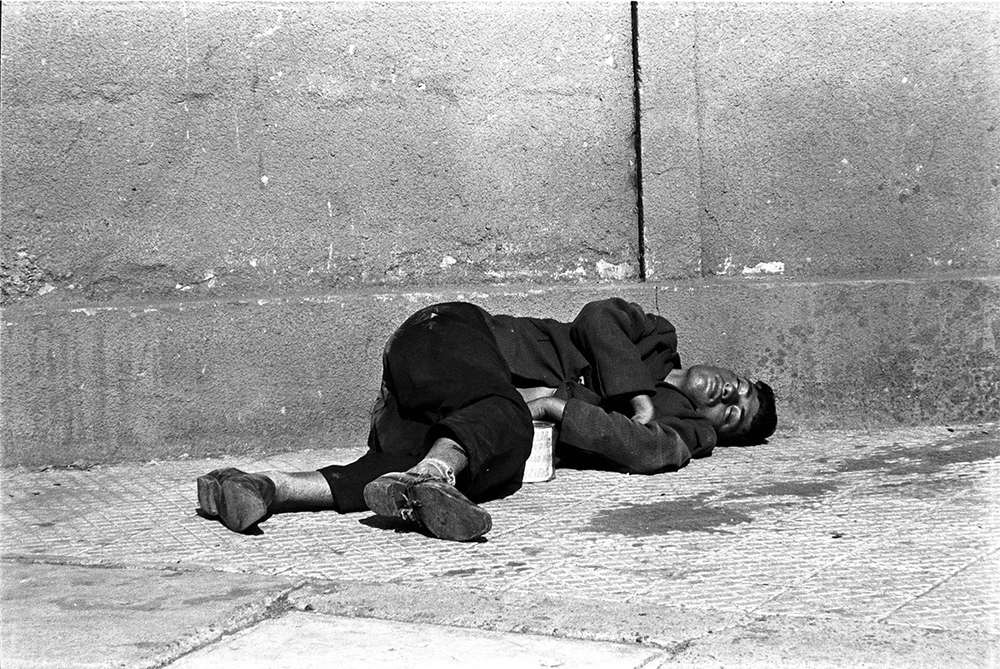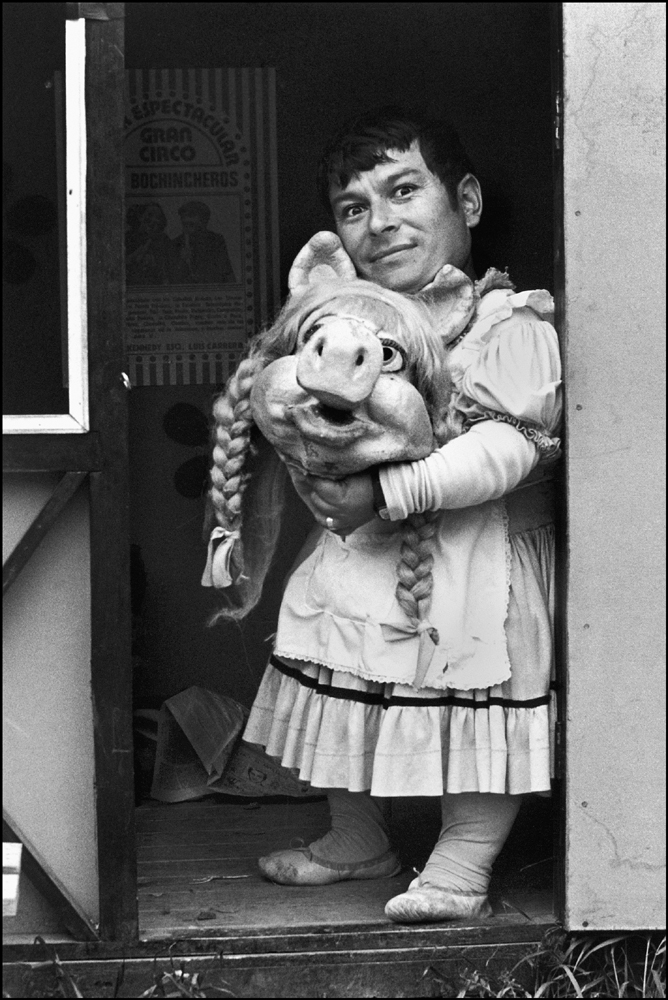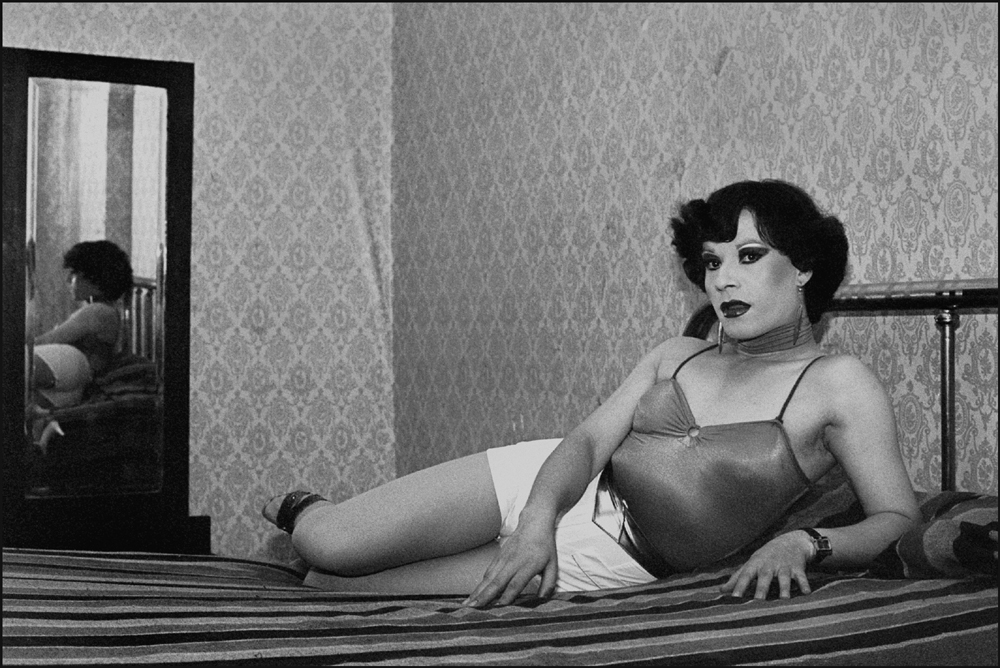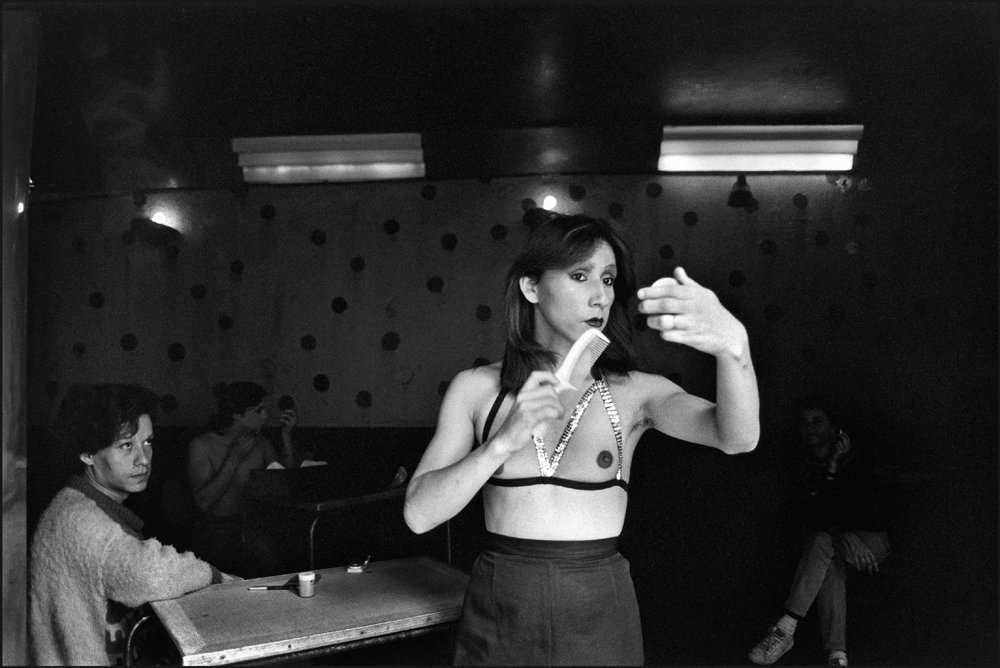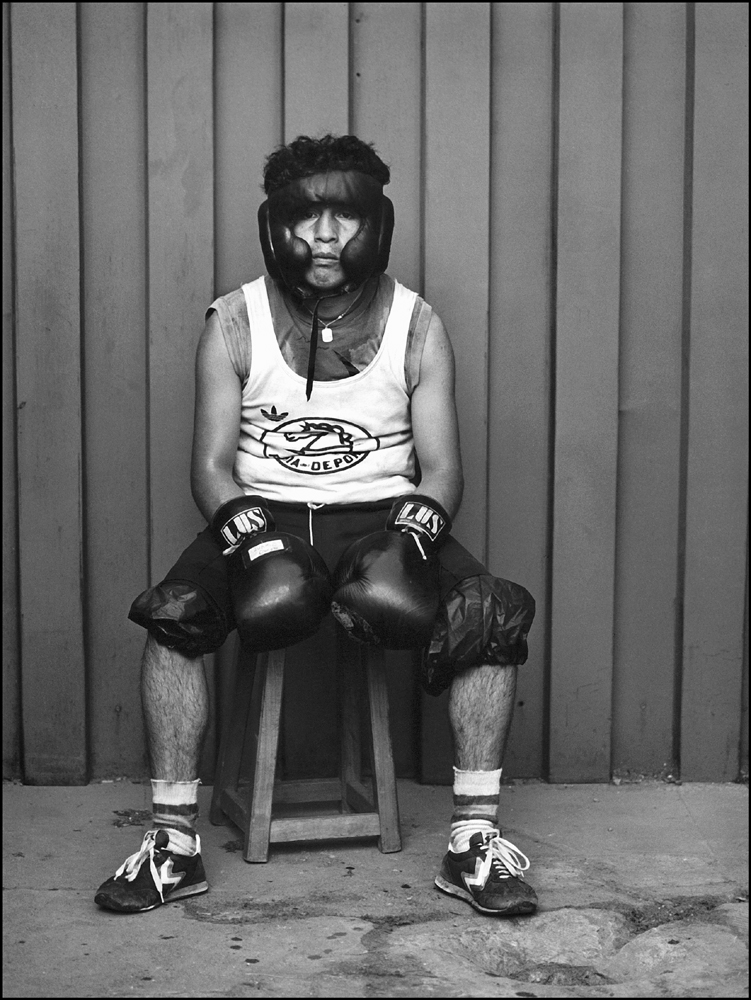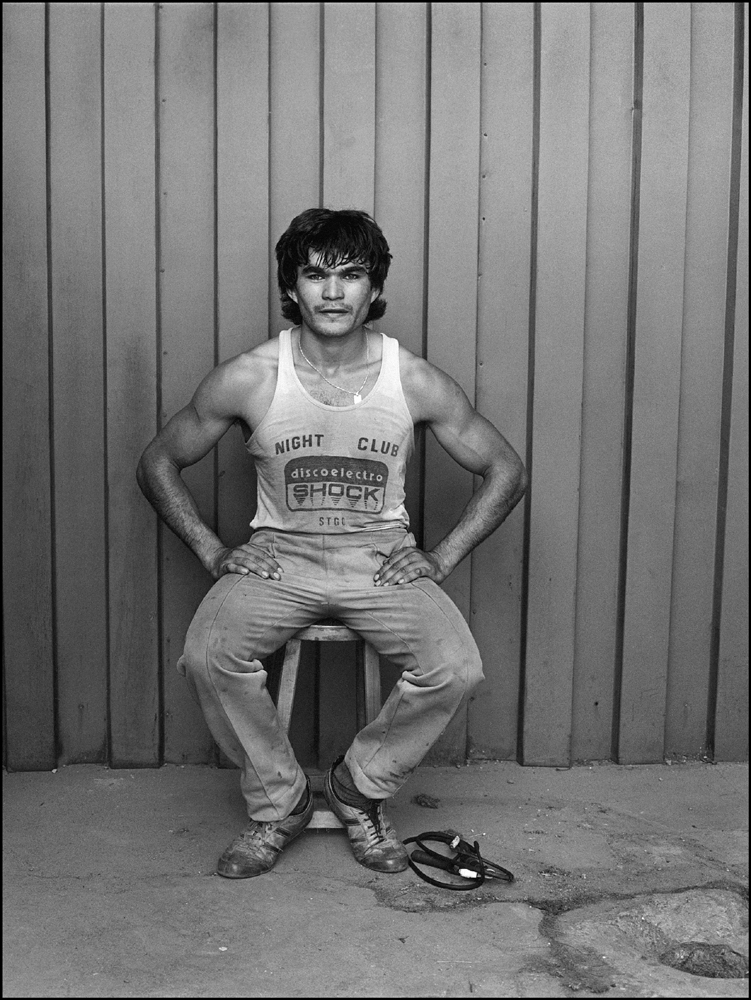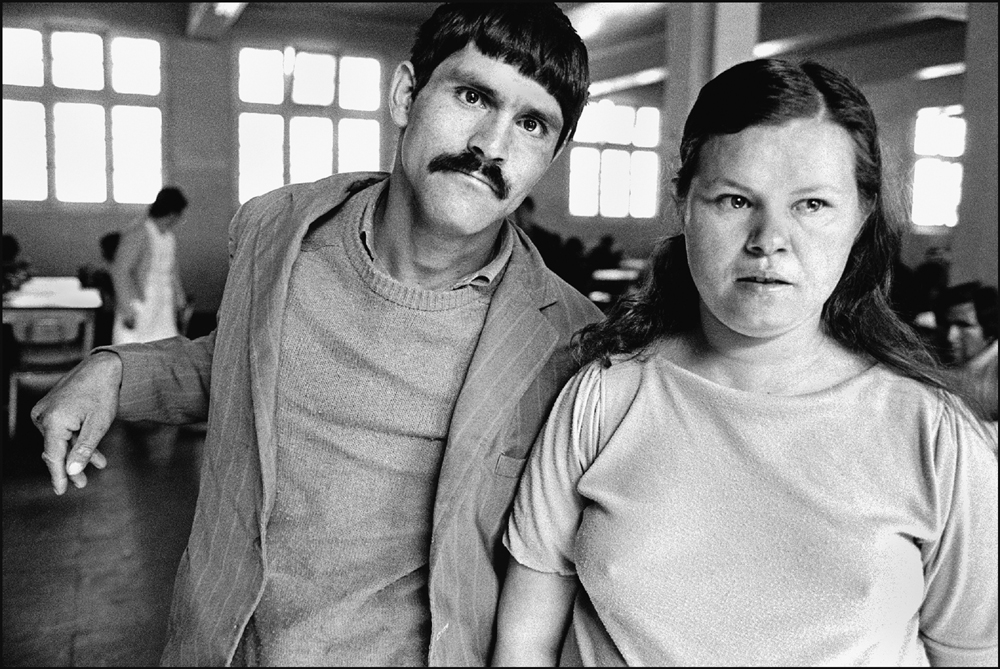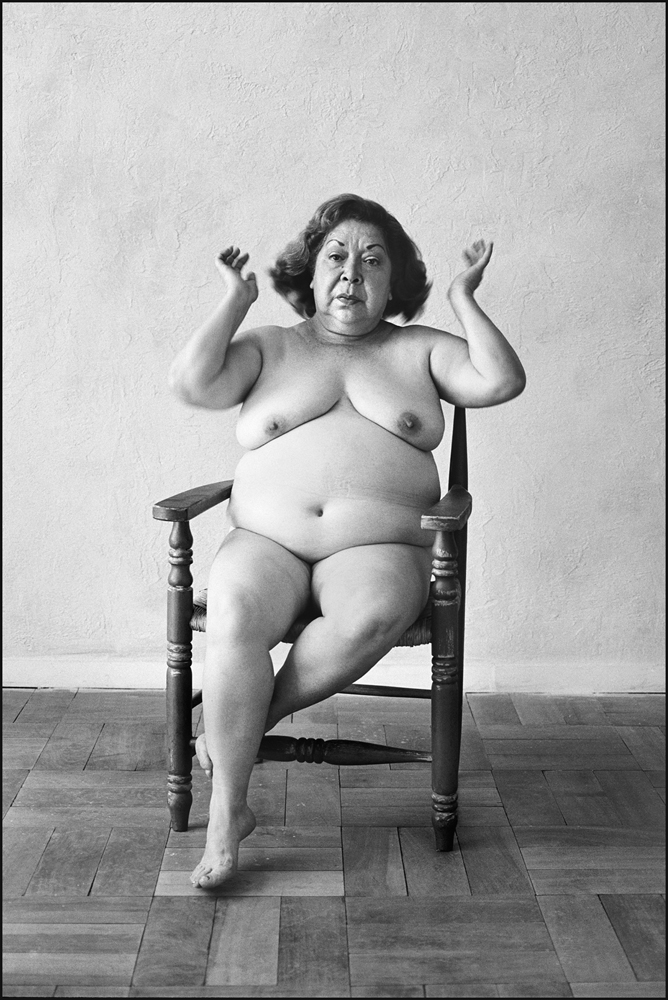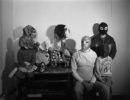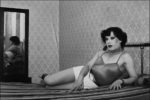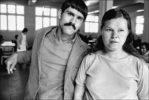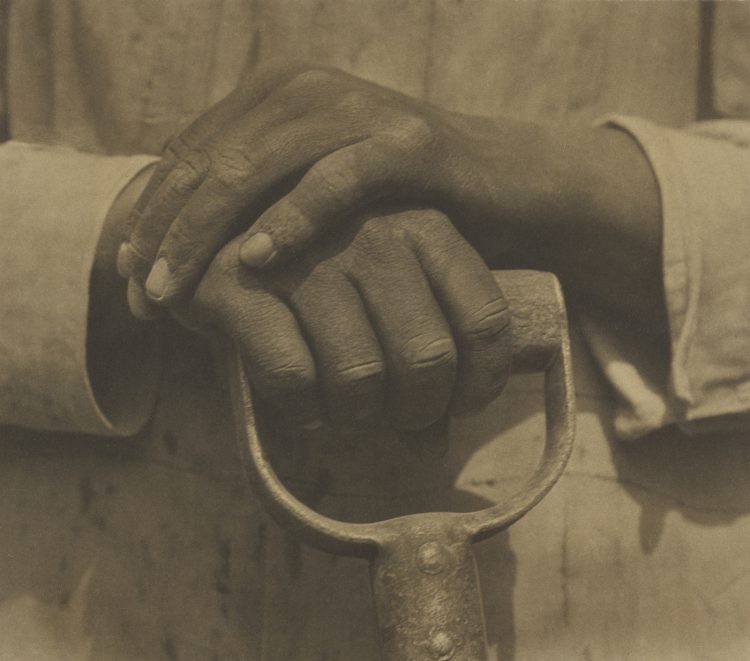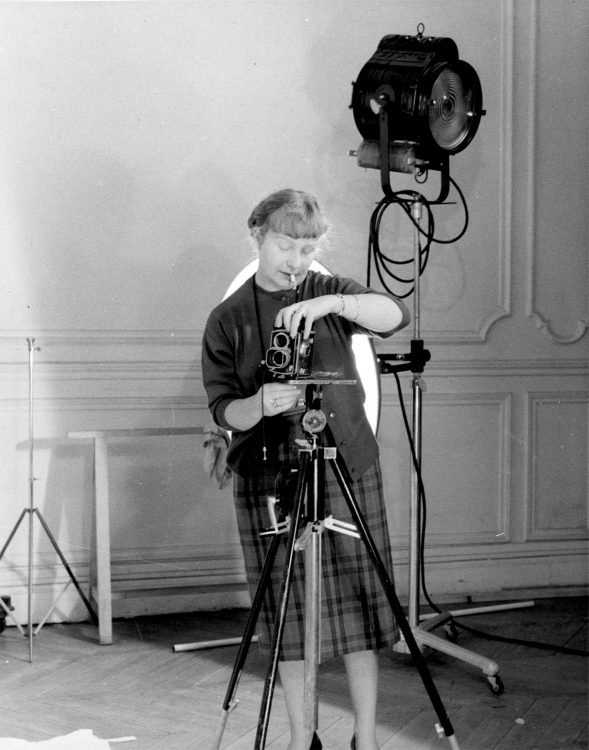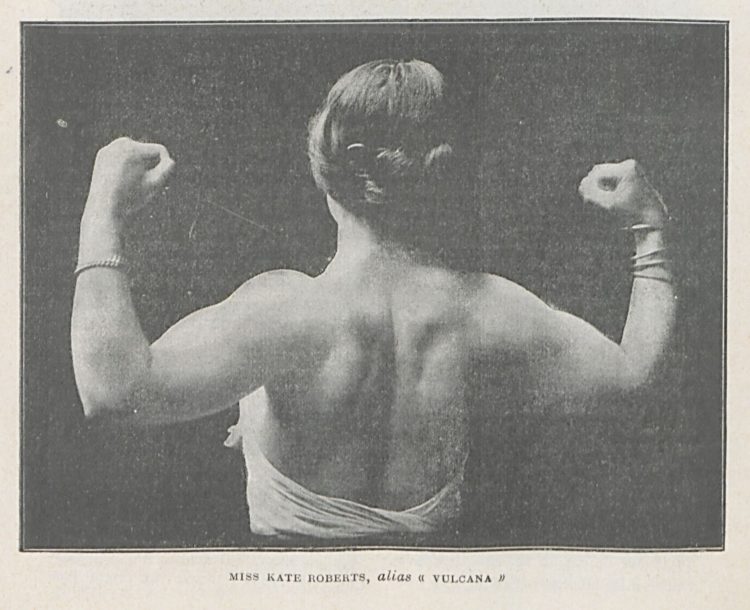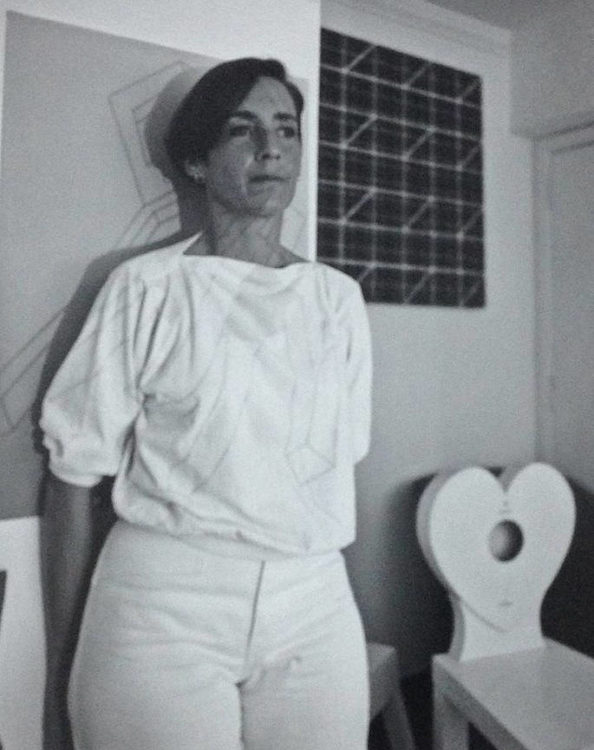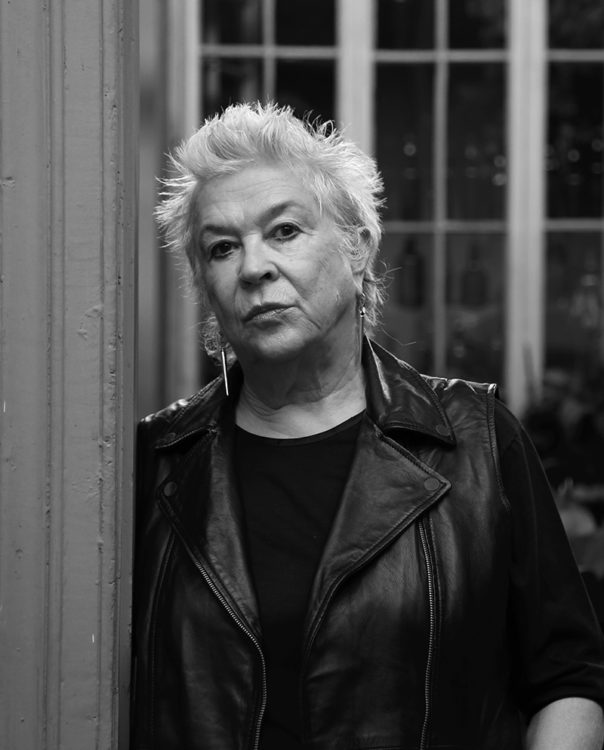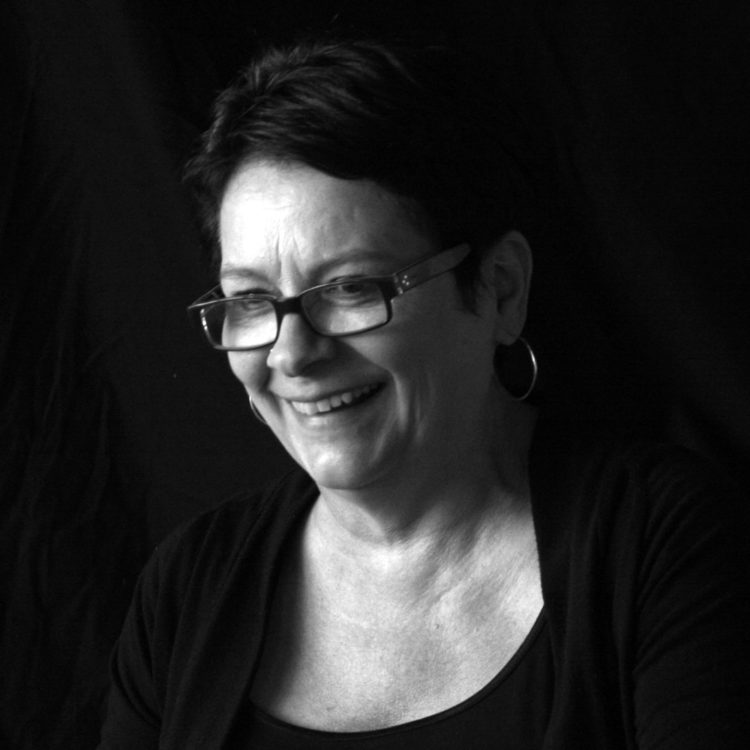Paz Errázuriz
Paz Errázuriz, Histoires inachevées, exh. cat., Maison de l’Amérique Latine, Paris [September 2023 – January 2024], Paris, ed. Maison de l’Amérique Latine, 2023
→Paz Errázuriz Fotografía, Santiago, Editorial Origo, 2004
→Paz Errázuriz, Santiago, D21 Editores, 2015
Paz Errázuriz. Une poétique de l’humain, rencontres d’Arles, Arles, July 3 – September 24 2017
→Los Nómadas del mar, Museo Nacional de Bellas Artes, Santiago, 1996
→Paz Errázuriz: Fotografías 1981-2002, Museo de Osma, Lima, 2002
→Paz Errázuriz, Fundación MAPFRE, Madrid, 16 December 2015 – 28 February 2016
Chilean photographer.
Paz Errázuriz is a Chilean photographer with a career spanning more than thirty years. She studied at the Cambridge lnstitute of Education in England in 1966 and at the Pontificia Universidad Católica in Santiago, graduating in 1972. ln 1981 P. Errázuriz cofounded with various other Chilean photographers the Asociación de Fotógrafos lndependientes. She never received formal education in photography, however, until 1993, when she enrolled in the International Center of Photography in New York. Over the years P. Errázuriz has turned her gaze to the most marginal, who often have less access to power or even to the means to voice their discontent. Her candid yet poetic black-and-white photographs often take the form of a series, at limes accompanied by the writings of other women. ln one of her first photographic series from 1979-1980, Los Dormidos [Asleeps], P. Errázuriz documented the lives of individuals who sleep on the streets of Santiago. This series con be read as a metaphor for the paralysis in which Chileans found themselves at the end of the Pinochet dictatorship (1973-1990). One of her most important series, La Manzana de Adán [The Adam’s apple, 1982-1990], was published as a photo-essay with text by Claudia Donoso. ln it, P. Errázuriz and C. Donoso were given entree into the lives of Mercedes, Evelyn, and Pilar, three transvestites who worked in the brothels of La Jaula and La Palmera in the towns of Talca and Santiago, respectively. Another photographic book, El infarto del alma [Heart attack of the soul, 1994], published with text by Diamela Eltit, documents the lives of patients confined to a psychiatric hospital in Putaendo. Both photographer and author gained the trust of the patients before rendering them as subjects.
Other important series—such as Kawesqar, Los Boxeadores [The boxers], and Mujeres [Women] —make up P. Errázuriz’s oeuvre. Her photographs are in the collections of, among others, the Museo Nacional de Bellas Arles, Santiago; Daros Latinamerica Collection, Zurich; and Museo Nacional Centro de Arte Reina Sofía, Madrid. She has been the recipient of important grants from the John Simon Guggenheim Memorial Foundation (1986), Fundación Andes (1990), Fulbright Program (1992), and Fondart (1994, 2009). She has been honored in Chile with the Ansel Adams Award by the lnstituto Chileno-Norteamericano de Cultura (1995), Premio Altazor de las Artes Nacionales (2005), and Premio a la Trayectoria Artística by the Círcula de Críticos de Arte de Chile (2005). ln 2014 she received the Pablo Neruda Orcier of Merit, the highest cultural and artistic recognition given by the Chilean government, and in 2015 she was given the PhotoEspaña Award, which pays tribute to the professional career of a major figure. Along with fellow Chilean artist Lotty Rosenfeld, P. Errázuriz represented Chile in the 56th Venice Biennale in 2015.
© Radical Women: Latin American Art, 1960–1985
© Archives of Women Artists, Research and Exhibitions



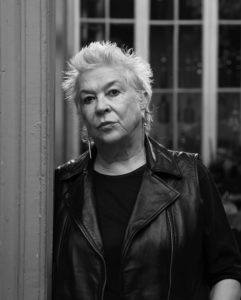
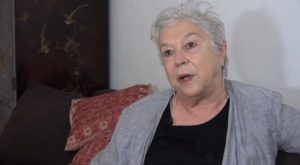 Paz Errázuriz at Paris Photo
Paz Errázuriz at Paris Photo 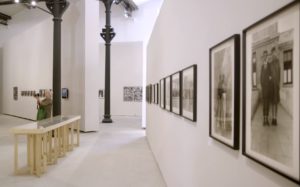 Paz Errázuriz at Jeu de Paume
Paz Errázuriz at Jeu de Paume 